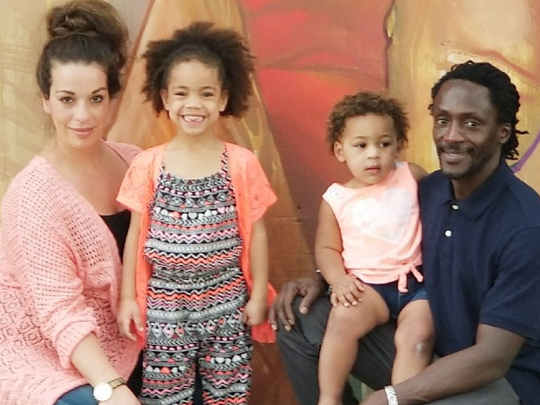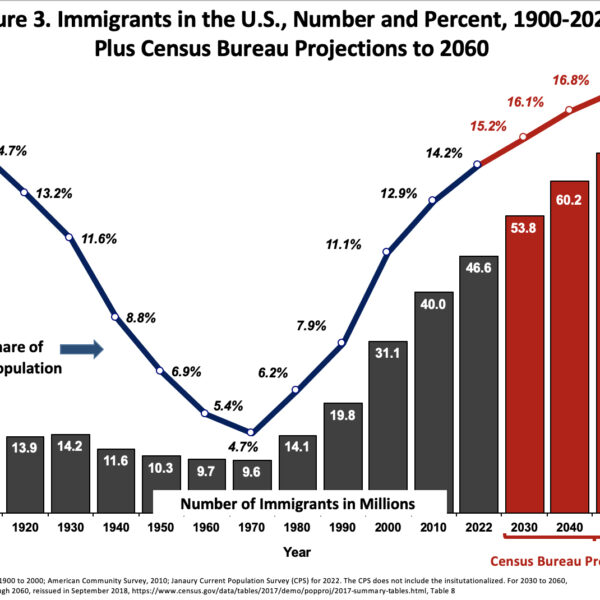
Magazine, The Immigrant Experience, Culled From Wisconsin Rapids Tribune
WISCONSIN RAPIDS – Since her husband’s deportation to West Africa, Katrina Jabbi feels as if she’s been grieving the death of a loved one.
She was pregnant with the couple’s third child when her husband, Buba, was deported to The Gambia in March 2018, swept up in the Trump administration’s stricter enforcement of immigration laws. Buba Jabbi had been in the U.S. for more than 20 years. He was detained after he reported voluntarily to an annual check-in with immigration officials.
When the couple’s son was born in October, the girls asked if Daddy was coming home. On holidays, the girls thought he would be there to celebrate.
“It was hard to break to them,” said Katrina Jabbi, 32. “To say the least, it’s been pretty devastating and traumatic for all of us. We lost a lot of time together as a family that we’ll never get back.”
Now, after more than a year apart, Jabbi, a Wisconsin Rapids native, said she and their three children, Nalia, 7, Aisha, 3, and 5-month-old Noble, will finally move to The Gambia to be with her husband and their father.
Jabbi said she and her children will leave the U.S. Wednesday evening. She said she considers the move an “exile” as it was a necessary decision based on their circumstances.
 It will be the first time Nalia and Aisha will see their father since he was deported, and the first time Buba, 42, will meet his newborn son.
It will be the first time Nalia and Aisha will see their father since he was deported, and the first time Buba, 42, will meet his newborn son.
“We are very excited, but the nerves have set in,” Jabbi said.
In the time they’ve been apart, she said it’s been a hard adjustment for all of them.
Katrina Jabbi with her daughters Nalia, 7, Aisha, 3, and son Noble, five months. (Photo: Courtesy of Rachel Sue Photography)
The move is something Jabbi has contemplated since Buba’s deportation last year. She traveled to The Gambia for three weeks in June to reunite with her husband and to get the lay of the land.
“It’s a developing country and lacks a lot of resources and things we’re used to here in America,” she said.
Jabbi said she plans to home-school their children while in The Gambia and is excited to be able to spend quality time together as a family. Throughout the last year, she has showed her daughters pictures of the West African country, to introduce it to them slowly.
Buba has spent the last year re-adapting to life in The Gambia, Katrina said. He started an organization with other men who were deported called the Face East Empowerment Movement. They strive to teach youths the skills they learned while in the U.S., prepare them for what it’s like outside of The Gambia and encourage them to make change within their own country, she said.
In the year since Buba’s deportation, Katrina said she had to rent out and eventually sell their home in Wisconsin Rapids and move in with her parents. Because Buba provided the main income for the family working as a truck driver, his deportation has caused a significant financial burden, she said.
“No matter what people’s immigration views are, there’s really no justification for separating families, in particular U.S. citizen families,” she said.
Their ultimate plan is to move back to the U.S., Jabbi said, but how long that will take is still uncertain.
The family is stuck in a ‘cumbersome and unforgiving’ process.
Buba Jabbi came to the United States in August 1995 on a temporary travel visa to attend the 1996 Olympics in Atlanta, Georgia, Katrina told USA TODAY NETWORK-Wisconsin last year. He and Katrina met in 2009, married in 2013 and moved to Wisconsin Rapids in 2016 to be closer to her family, she said.
After overstaying his visa, Buba tried to reopen his case and gain legal status but was moved into removal proceedings, where he remained for several years, Katrina said last year.
A federal judge in Atlanta issued the final order of removal in May 2010, which required him to leave the country, according to Nicole Alberico, spokeswoman for U.S. Immigration and Customs Enforcement’s Chicago office.
However, Buba was considered “undeportable” because his country would not provide travel documents on behalf of its nationals at the time, Katrina Jabbi wrote on the family’s GoFundMe page. Instead, he was given orders of supervision, requiring him to report to immigration once a year and obtain work authorization, which according to his wife he had done until he was detained in February 2018.
Because of a regime change in The Gambia, Buba and other pending Gambian deportees were deported last March after years of being in limbo, said Laureen Anderson-Stepanek, a Chicago-based immigration lawyer who has consulted with Katrina over the last year.
Buba is now banned from the U.S. for 10 years under the Illegal Immigration Reform and Immigrant Responsibility Act of 1996, said Anderson-Stepanek.
Katrina said she believes reform is most needed in that piece of legislation.
“We were essentially going through the immigration process,” she said. “I think people fail to realize that many of these people that are being deported are going through the process and stuck in limbo and aren’t being given due process.”
Because of previous poor legal advice, changes in U.S. immigration policies and some bad luck, the process hasn’t worked in the Jabbi family’s favor, said Anderson-Stepanek.
Read more Wisconsin Rapids family will move to West Africa a year after husband’s deportation








